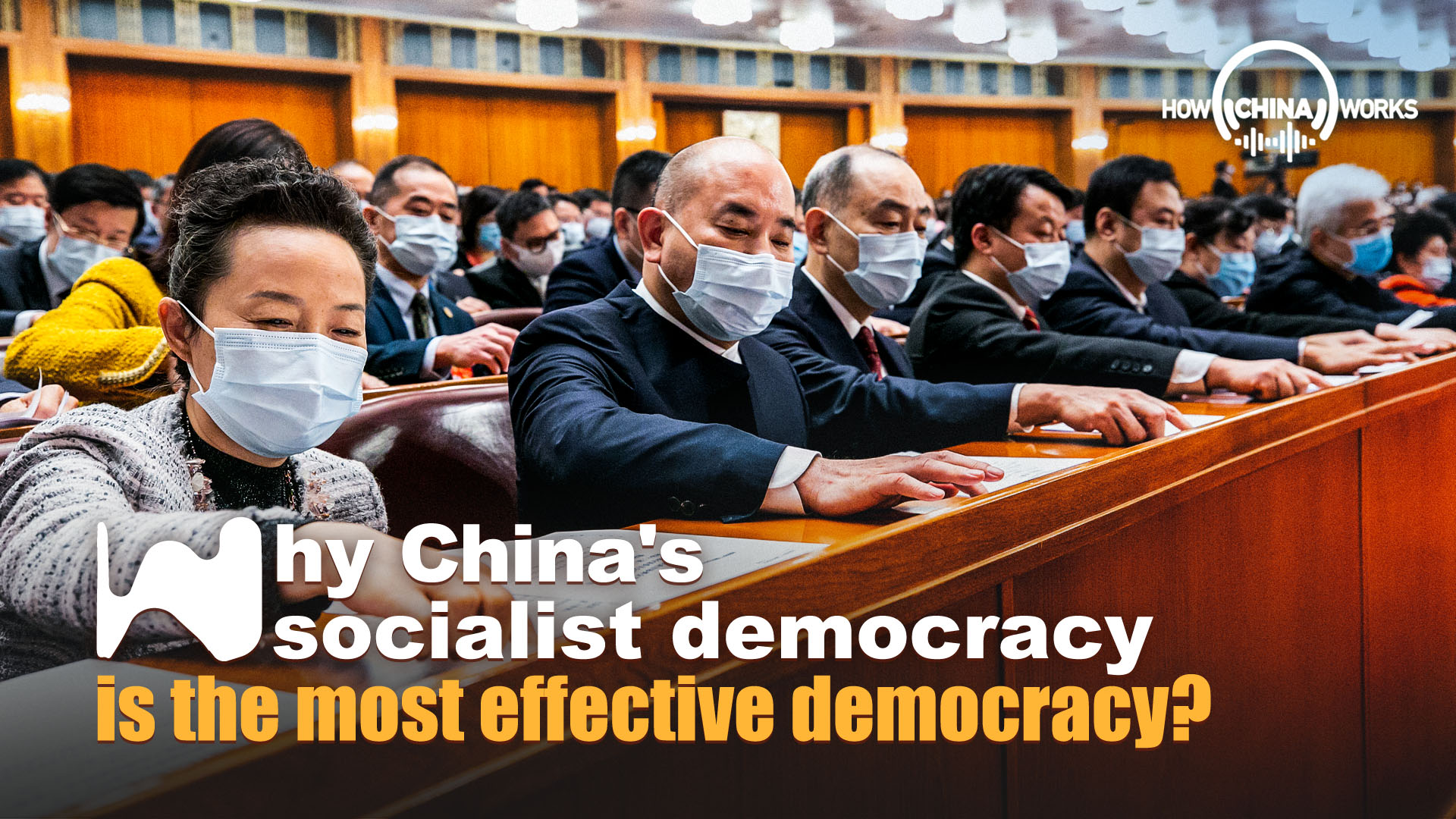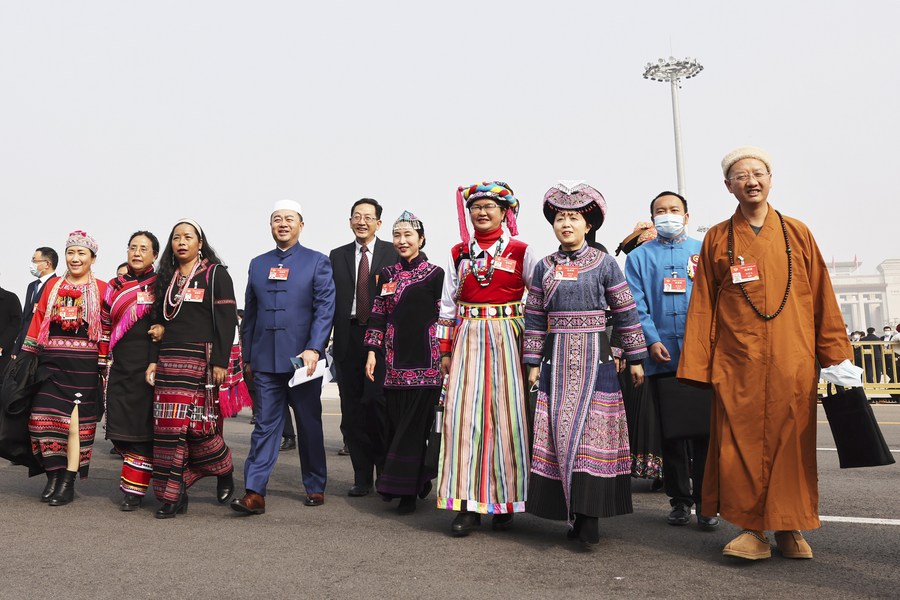
Many people in the West think that there's no democracy in China as the country is under the rule of one Party, the Communist Party of China (CPC). The conclusion is based on the belief that democracy can only be possible under a two-party or multi-party system.
But the fact is that China's socialist democracy has been developed based on its national context after numerous trials, just like the country's political system. As Chinese President Xi Jinping puts it, the Chinese democracy is "the broadest, most genuine, and most effective democracy to safeguard the fundamental interests of the people."
According to Xi, the reasons can be summarized into three parts, namely the unity of Party leadership, the people running the country, and law-based governance.
Unity of Party leadership
The CPC leadership is believed to be essential for safeguarding China's unification and keeping Chinese society harmonious and stable since the Party is recognized as the faithful representative of the fundamental interests of the Chinese people of all ethnic groups.
China adopts a system of multi-party cooperation and political consultation under the leadership of the CPC. The system stresses the CPC leadership while allowing broad participation of non-CPC parties and personages without party affiliation in the deliberation of state affairs and exercise of supervision.
Unlike the two-party system boasted by some Western countries, China's political system avoids the common scenario where parties prioritize their own interests rather than the people's and putting emphasis on beating the oppositions rather than working jointly for the well-being of people.
On the other hand, following the principle of "serving the people wholeheartedly," the CPC has been striving to fulfil the solemn promise by integrating the principle into the country's rule of law since reform and opening-up in late 1978. It is through this way that the interests of people can be fundamentally guaranteed.
Moreover, China's socialist democracy, with the feature of Party's leadership, ensures the consistency of policymaking as well as the sustainability of development goals.
Therefore, just as Xi said, the Party's leadership is a fundamental guarantee for ensuring that the people run the country and government policies are broadly consulted with democrats from all walks of life.
Read more:
Consultative democracy, a key to rejuvenation of the Chinese nation
People running the country
The people's participation in politics is regarded as the "essence" of China's socialist democracy.
As written in the Constitution, "state power belongs to people." This idea, constitutes the core value of China's political system and is well embodied in the people's congress system as well as in the political consultative system.
Elected by people, deputies from all walks of life and from all 56 ethnic groups, with a wide range in ages, education background and religious beliefs are supposed to represent the interests of the great majority of the people.
Gathering together, the deputies are able to participate in the discussion and decision-making process as the real masters of the state by exercising power granted by the Constitution in legislation, supervision, appointment and removal of officials, and making decisions on major issues.
By doing so, the people-centered political system gives full play to the wisdom and strength of the entire society so as to ensure every policy can be rational and reach the broadest possible consensus.

Members of the 13th National Committee of the Chinese People's Political Consultative Conference (CPPCC) walk toward the Great Hall of the People for the opening meeting of the fourth session of the 13th CPPCC National Committee in Beijing, capital of China, March 4, 2021. /Xinhua
Political consultation
CPC is not the only player in China's political system. Based on the political system of multi-party cooperation and political consultation, the eight non-CPC parties and personages without party affiliation also have a voice in state affairs.
If the CPC's leadership is the core of China's socialist democracy, then the political consultation is supposed to be the guarantee for efficient implementation of the system.
Through the system of political consultation, people from the non-CPC parties and personages without party affiliation form a patriot-united front and participate in the deliberation and administration of state affairs by expressing their views on national development.
Meanwhile, people's political consultative conference committee, as advisory bodies, serve as platforms for parties to achieve multi-party cooperation and ensure good governance for the sake of the Chinese nation rather than being arenas for parties to gain interest for their own sake.
With the unity of the Party's leadership, the CPC gives play to the important role of socialist consultative democracy through a coordinated approach, which not only guarantees the efficient operation of party committees, people's congresses, government departments, people's courts and other administrative bodies, but also guarantees broad participation of different parties.
The political system of socialism with Chinese characteristics is a great creation of the CPC and the Chinese people, Xi said. "We have every confidence that we can give full play to the strengths and distinctive features of China's socialist democracy, and make China's contribution to the political advancement of mankind."




